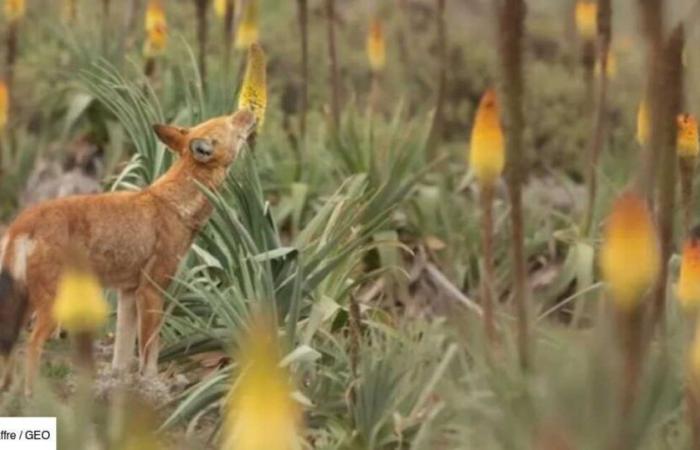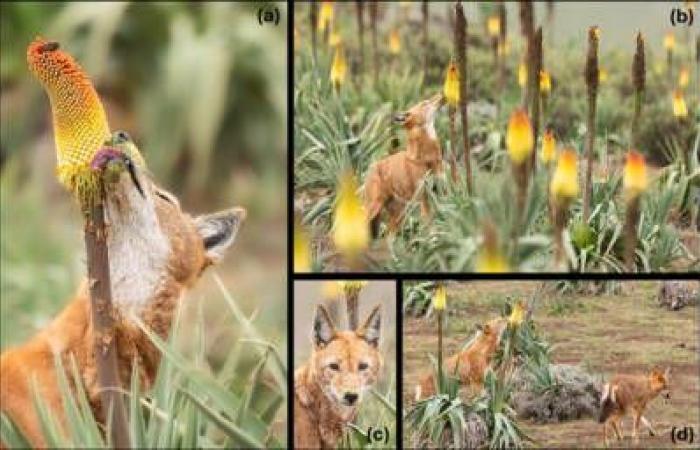In the remote mountains of Ethiopia, an unexpected discovery challenges conventional wisdom about the eating habits of large carnivores. Thanks to extraordinary photos published in the journal Ecology, scientists reveal that Ethiopian wolves (A simian dog), a critically endangered species, engage in a curious ritual: licking flowers Kniphofia foliosanicknamed “torches of the gods” for their dazzling colors. A habit which could well give them a unique role as pollinators.
An unexpected discovery in the heart of the Ethiopian mountains
The Ethiopian wolf, usually strictly carnivorous, sometimes seems to give in to a sweet temptation: the sweet nectar of flowers Kniphofia foliosa. An observation that intrigues the scientific community. “These discoveries show how much we still have to learn about one of the world’s most endangered carnivores.”explains Sandra Lai, ecologist at the University of Oxford and co-author of the study.
In Ethiopia, across the Danakil, land of salt
Researchers followed six wolves from three packs for four days to analyze their behavior. While some only visited a few flowers, others, like one particularly curious individual, licked up to 30 flowers in a single outing! This preference for mature flowers, located on the lower parts of the plants, seems to allow them to maximize access to nectar rich in sugars.
When consuming this nectar, wolves often end up with pollen on their snouts, opening the possibility that they may act as pollinators. However, “it is not yet established that wolves are effective pollinators”underline the researchers. Their potential role in plant reproduction therefore remains to be confirmed.
Ethiopian wolves have developed a taste for flowers. Adrien Lesaffre
Between gluttony and survival, an occasional source of energy
The nectar of these flowers is well known to local residents, especially the children of shepherds who, like wolves, sometimes indulge in this natural sweet. Claudio Sillero, conservation biologist at the University of Oxford and co-author of the study, says: “I discovered this nectar when I saw children licking flowers in the Bale Mountains. I tasted it myself, and it was pleasantly sweet. When I saw wolves doing the same, I understood that they appreciated this unusual source of energy”.
For Ethiopian wolves, this behavior could reflect an adaptation to a changing environment where prey becomes scarcer. However, nectar remains a marginal contribution to their diet. Scientists now plan to explore the real importance of this behavior: is it just an occasional indulgence or a significant nutritional supplement?
The study also opens perspectives on possible co-evolution between plants and carnivores, a subject that is still little studied. If the pollinating role of wolves were to be confirmed, it would be a unique case among large carnivores, overturning our traditional conceptions of interactions between species.







